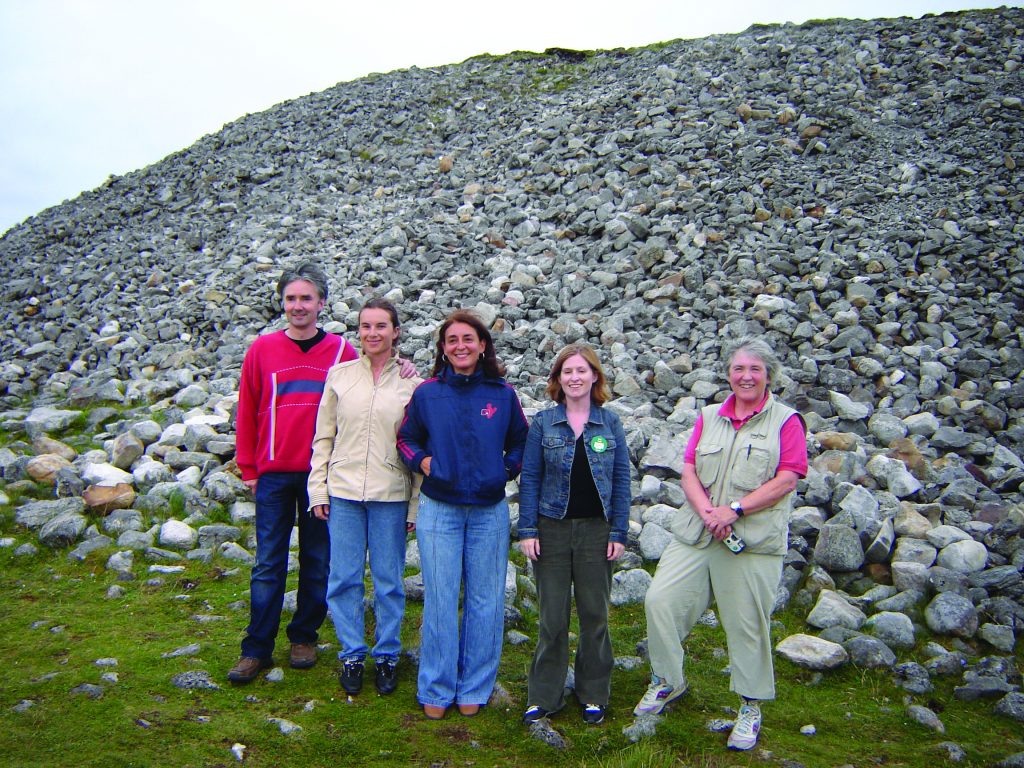Maureen Murphy and Martin Mullin talk to Irish America about teaching American students about the Great Hunger.
It has been nearly ten years since New York State released a new human rights curriculum, which would include alongside its existing subjects of the North American slave trade and the European Holocaust: the Great Irish Famine.
Dr. Maureen Murphy, a professor at Hofstra University who specializes in the areas of Irish folklore, Irish literature and Irish history, was among those who took on the task of creating this curriculum in a way which extended beyond memorizing facts about immigration or potato blights.
The source material ranges from personal letters to population graphs and the questions are designed to challenge students to use the material given to form an argument or analysis on their own.
“It’s a way to look at that experience and it’s a way for us to continue to be mindful of those who suffer from hunger and homelessness,” Dr. Murphy explained. The last lessons are lessons in being aware that hunger and homelessness are still in the world today and what different outreaches are available to those today.”
Prior to the efforts to include the Irish Famine in social studies classes in New York schools, James Mullin, a former teacher, lobbied to have Irish potato famine included in the genocide curriculum of the state’s public schools, along with Native American history, North American Slavery, the Ukrainian starvation, the Armenian genocide, and the killing fields of Cambodia.
Mullin believed that the British deliberately set out to destroy the Irish race by exporting food products out of the country, and he wanted students and teachers to decide if that constituted genocide.
“While the Irish starved and were evicted for non payment of rent, the British were exporting beef and other products out of the country,” Mullin said.
As the curriculum in New Jersey was approved as in 1996, the controversy surrounding it erupted. An editorial war began which featured British, Irish, and American newspapers, the majority of which expressed outrage toward the accusation that the Famine was genocide. Claims were made that the curriculum was a political ploy to manipulate Irish American voters while many academics and politicians working on the project maintained that labeling the potato famine as a purely natural disaster was inaccurate.
The row over the New Jersey famine curriculum influenced the attempt to create as unbiased a curriculum as possible in New York, Mullin argues. In his “History Wars” piece for the New York Daily News he wrote that New York curriculum leaves gaping holes in the history of the Irish British colonial relationship and perpetuates the idea that the Irish were “poor by nature.”
“The New York Irish Famine Curriculum contains no readings on centuries of repressive English trade laws, which effectively destroyed Irish trade, and none on the Ulster and Cromwellian plantations, which removed the native Irish from millions of acres of fertile land,” he wrote.
Dr. Murphy argues that the New York curriculum was framed as a case study of “hunger and homelessness” and not an argument for or against the label of genocide.
“We avoided at the time framing it like the Armenians or in that light. People were scared of that sort of particularism,” she said. “Our concern was not to provide classrooms with a particular point of view but we wanted students to read primary source materials, write with clarity and be able to analyze the data.
The Irish Famine curriculum is now taught in public school in several states and each approach varies based on a given state’s legislation. While controversy has surrounded the construction of these curricula and how to teach it, the value of this education lies most obviously in what the wisdom of the past can teach about hunger prevention and relief now and in the future.
Editor’s Note: This article was originally published in the June / July 2010 issue of Irish America.


Leave a Reply